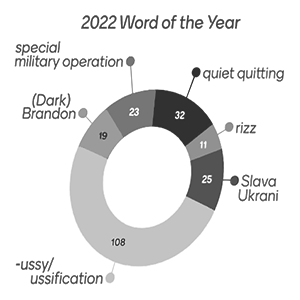A party line (multiparty line, shared service line, party wire) is a local loop telephone circuit that is shared by multiple telephone service subscribers. Party line systems were widely used to provide telephone service, starting with the first commercial switchboards in 1878.
Party lines provided no privacy in communication. They were frequently used as a source of entertainment and gossip, as well as a means of quickly alerting entire neighborhoods of emergencies such as fires, becoming a cultural fixture of rural areas for many decades. Objections about one party monopolizing a multi-party line were a staple of complaints to telephone companies and letters to advice columnists for years and eavesdropping on calls remained an ongoing concern. Continue reading
Party Line
B-theory of Time
The B-theory of time, also called the ‘tenseless theory of time,’ is one of two positions regarding the temporal ordering of events in the philosophy of time. B-theorists argue that the flow of time is only a subjective illusion of human consciousness, that the past, present, and future are equally real, and that time is tenseless: temporal becoming is not an objective feature of reality. Therefore, there is nothing privileged about the present, ontologically speaking.
The B-theory is derived from a distinction drawn by English idealist metaphysician J. M. E. McTaggart between A series and B series. The B-theory is often drawn upon in theoretical physics, and is seen in theories such as eternalism (the view that all existence in time is equally real, as opposed to presentism or the growing block universe theory of time, in which at least the future is not the same as any other time). Continue reading
Killing Baby Hitler
Killing baby Hitler is a thought experiment in ethics and theoretical physics which poses the question of using time travel to assassinate an infant Adolf Hitler. It presents an ethical dilemma in both the action and its consequences, as well as a temporal paradox in the logical consistency of time. Killing baby Hitler first became a literary trope of science fiction during World War II and has since been used to explore these ethical and metaphysical debates.
Public debate around the question of killing baby Hitler reached its height in late 2015, after ‘The New York Times’ published a poll asking its readers the question. 42% said they would kill baby Hitler, 30% said they would not and 28% were undecided. Advocates of killing baby Hitler included Florida governor Jeb Bush and film actor Tom Hanks, while comedian Stephen Colbert and pundit Ben Shapiro were counted among the opponents of the policy. Continue reading
Kia Challenge
The Kia Challenge is a viral TikTok trend to which a series of motor vehicle thefts is attributed, targeting Kia and Hyundai vehicles in the U.S. manufactured between 2011 and 2021. The trend, which began in October 2022, has led to eight fatalities, according to the National Highway Traffic Safety Administration.
Until 2011, most Kia vehicles were manufactured with immobilizers—electronic security devices that prevent the engine from being started unless a proper key is inserted—a system present in most Hyundai vehicles until 2016. In Kia Sportage models manufactured in 2010, the immobilizer system comprised a transponder in the ignition key, an antenna coil in the key cylinder, and a SMARTRA unit. Kia vehicles manufactured from 2011 to 2021 and Hyundai vehicles manufactured from 2016 to 2021 that use a steel key, in comparison to a key fob and a push-button start mechanism, lack immobilizers. Continue reading
No Way to Prevent This
”No Way to Prevent This,’ Says Only Nation Where This Regularly Happens’ is the title of a series of articles perennially published by the American news satire organization ‘The Onion’ satirizing the frequency of mass shootings in the United States and the lack of action taken in the wake of such incidents.
Each article is about 200 words long, detailing the location of the shooting and the number of victims, but otherwise remaining essentially the same. A fictitious resident—usually of a state in which the shooting did not take place—is quoted as saying that the shooting was ‘a terrible tragedy,’ but ‘there’s nothing anyone can do to stop them.’ The article ends by saying that the United States is the ‘only economically advanced nation in the world where roughly two mass shootings have occurred every month for the past eight years,’ and that Americans view themselves and the situation as ‘helpless.’ Continue reading
The Hum
The Hum is a name often given to widespread reports of a persistent and invasive low-frequency humming, rumbling, or droning noise audible to many but not all people. Hums have been reported all over the world. They are sometimes named according to the locality where the problem has been particularly publicized, such as the ‘Taos Hum’ in New Mexico and the ‘Windsor Hum’ in Ontario.
The Hum does not appear to be a single phenomenon. Different causes have been attributed, including local mechanical sources, often from industrial plants, as well as manifestations of tinnitus or other biological auditory effects. Continue reading
Dark Forest Hypothesis
The dark forest hypothesis is the conjecture that many alien civilizations exist throughout the universe, but they are both silent and hostile, maintaining their undetectability for fear of being destroyed by another hostile and undetected civilization. It is one of many possible explanations of the Fermi paradox, which contrasts the lack of contact with alien life with the potential for such contact. The hypothesis derives its name from Chinese author Liu Cixin’s 2008 novel ‘The Dark Forest,’ although the concept predates the novel. A similar hypothesis, under the name ‘deadly probes,’ was described by astronomer and author David Brin in his 1983 summary of the arguments for and against the Fermi paradox.
The ‘dark forest’ hypothesis presumes that any space-faring civilization would view any other intelligent life as an inevitable threat and thus destroy any nascent life that makes itself known. As a result, the electromagnetic spectrum would be relatively quiet, without evidence of any intelligent alien life. Continue reading
Catturd
Catturd (b. 1964) is the online identity of right-wing American Twitter shitposter and Internet troll Phillip Buchanan. The account is known for its scatological humor, as well as spreading conspiracy theories and disinformation. Buchanan lives in Wewahitchka, Florida, on a ‘ranch in the middle of nowhere.’
He is thrice-divorced. He married his first wife, whom he met at a gym when she was 19 and he was in his early twenties, in 1986. The marriage was annulled in 1988. By 1991, Buchanan had married and divorced another woman. His third marriage happened a few years later, while he was working at a post office. They parted in 1998 and divorced in 2002. Buchanan claims to have served in the US Army. In the 90s, he filed for Chapter 7 bankruptcy, and later fronted a band in Tallahassee, Florida.
Presentism
In literary and historical analysis, presentism is a term for the introduction of present-day ideas and perspectives into depictions or interpretations of the past. Some modern historians seek to avoid presentism in their work because they consider it a form of cultural bias, and believe it creates a distorted understanding of their subject matter. The practice of presentism is regarded by some as a common fallacy when writing about the past.
The debate surrounding presentism in historical analysis is ongoing, with some arguing that completely divorcing moral judgments from historical inquiry may lead to a relativistic approach that fails to acknowledge the universal nature of certain moral principles. Balancing historical context with ethical considerations remains a challenge for historians and philosophers alike. Continue reading
The Anxiety of Influence
‘The Anxiety of Influence: A Theory of Poetry’ is a 1973 book by Harold Bloom, literary critic and Sterling Professor of humanities at Yale. It was the first in a series of books that advanced a new ‘revisionary’ or antithetical approach to literary criticism. Bloom’s central thesis is that poets are hindered in their creative process by the ambiguous relationship they necessarily maintain with precursor poets.
He argues that ‘the poet in a poet’ is inspired to write by reading another poet’s poetry and will tend to produce work that is in danger of being derivative of existing poetry, and, therefore, weak. Because poets historically emphasize an original poetic vision in order to guarantee their survival into posterity, the influence of precursor poets inspires a sense of anxiety in living poets. Thus Bloom attempts to work out the process by which the small minority of ‘strong’ poets manage to create original work in spite of the pressure of influence. Continue reading
Sloot Digital Coding System
The Sloot Digital Coding System is an alleged data sharing technique that its inventor claimed could store a complete digital movie file in 8 kilobytes of data — violating Shannon’s source coding theorem (which establishes the statistical limits to data compression) by many orders of magnitude. The alleged technique was developed in 1995 by Romke Jan Bernhard Sloot (1945-1999), a Dutch electronics engineer.
In 1999, just days before the conclusion of a contract to sell his invention, Sloot died suddenly of a heart attack. The source code was never recovered, and the technique and claim have never been reproduced or verified. Continue reading
ussy
ussy is an English-language suffix derived from the word pussy used to create novel portmanteau terms, usually referring to hole-shaped objects. The suffix has existed within LGBT slang in the form ‘bussy’ (boy pussy) since the early 2000s, but was popularized in the late 2010s and early 2020s on social media platforms including TikTok. It was named the American Dialect Society’s word of the year for 2022.
‘Bussy’ and ‘mussy’ (man pussy) first appearing on the internet between 1999 and 2004. An April 2017 Tumblr post popularized the suffix with the term ‘thrussy’ (from throat), and it was further spread as part of the ‘one thicc bih’ Internet meme that began to spread about a month later. A 2018 study of ussy usage on Twitter as part of the meme identified 1,338 ‘pussy blends’ used in tweets from June to August 2017. Continue reading













